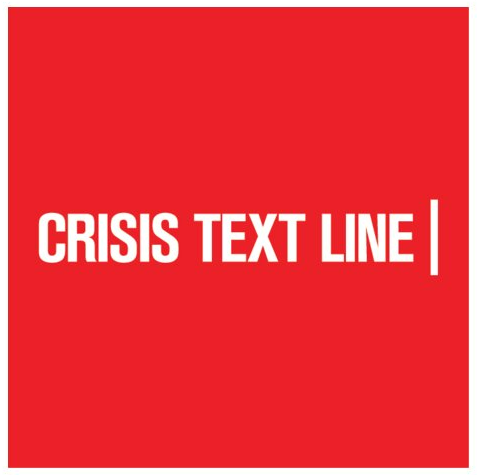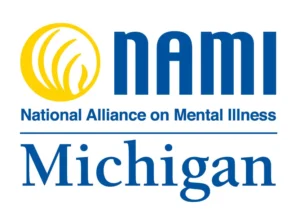Helpful Resources for Mental Health & Family Wellness
Navigating mental health, parenting, and personal growth can feel overwhelming—but having the right tools makes all the difference. We’ve gathered a list of trusted resources to support you and your family in areas like emotional wellbeing, ADHD, parenting, and self-guided learning. Whether you’re looking for information, printable tools, or practical parenting strategies, you’ll find helpful options here.
Explore Our Helpful Resources!
Navigating mental health, relationships, and personal growth is easier with the right tools. These are trusted, Michigan-friendly resources plus ways to stay connected with Hinman Counseling Services.
Community & Education
- NAMI MICHIGAN - Education, peer support, and advocacy for individuals and families impacted by mental illness.
- LGBT DETROIT - Support, empowerment, and mental health advocacy for LGBTQ+ individuals, especially people of color.
- 988 SUICIDE & CRISIS HOTLINE – Call or text 988 for free, 24/7 support from trained counselors for mental health, substance use, or suicidal crisis.
- CRISIS TEXT LINE – Text HOME to 741741 to connect with a trained crisis counselor, available 24/7 across the U.S.
Stay Connected with HCS
- Follow us on Facebook and Instagram for tips, encouragement, and practice updates.
- Subscribe to our newsletter for helpful reads and upcoming events.
-
Listen to our podcast WetDreamz on YouTube, Spotify, Facebook, and Instagram—expert conversations on men’s sexual health, relationships, and personal growth.
FAQ
At Hinman Counseling Services, we offer a safe, supportive space for your mental health journey. Whether you’re seeking sex therapy, individual counseling, or children’s therapy, starting can feel overwhelming. Here you’ll find quick answers about our services, process, and treatment options—so you know what to expect and how we can help.
Q: What is sex therapy, and how can it help me?
A: Sex therapy focuses on addressing emotional, psychological, and physical issues related to intimacy and sexual health. Our therapists help individuals and couples navigate concerns like sexual anxiety, communication, and intimacy issues, creating a safe space to explore your needs and desires.
Q: How many sessions do I need for sex therapy?
A: The number of sessions varies depending on your unique situation. Some people see improvement after just a few sessions, while others may benefit from long-term therapy. We work with you to create a plan that meets your needs.
Q: How can individual counseling support me?
A: Individual counseling provides a confidential environment where you can work through personal challenges, stress, anxiety, depression, or trauma. Your therapist will work with you on coping strategies, personal growth, and emotional well-being.
Q: Will my sessions be kept confidential?
A: Yes! Confidentiality is essential in building trust. Your privacy is a priority, and your therapist will explain the limits of confidentiality during your first session.
Q: How do I know if my child needs therapy?
A: Children may benefit from therapy if they are experiencing behavioral changes, anxiety, difficulty with school or relationships, or have experienced a traumatic event. Our therapists work with children using age-appropriate techniques to help them express and manage their emotions.
Q: How do you involve parents in children’s therapy?
A: Parent involvement is crucial for a child’s success in therapy. We keep parents updated on progress and may offer strategies to implement at home, while maintaining a child-friendly therapeutic space.
Q: How can couples counseling help improve my relationship?
A: Couples counseling helps partners work through issues such as communication, trust, conflict resolution, and intimacy. Our therapists help couples strengthen their relationship by fostering healthy communication and emotional understanding.
Q: How long does couples therapy usually take?
A: The duration of therapy depends on the complexity of the issues you’re addressing. Typically, couples see progress in a few sessions, though longer-term counseling can provide deeper insight and solutions.
Q: What is family therapy, and how can it improve our relationships?
A: Family therapy helps address interpersonal dynamics and conflict within families. It promotes healthy communication, conflict resolution, and emotional understanding, allowing families to function better together.
Q: Do both parents need to attend family therapy?
A: It’s beneficial if both parents attend, but family therapy can still be effective if one parent is involved, especially when focusing on specific issues affecting the family unit.
Q: What are supervised therapy sessions?
A: Supervised therapy sessions involve a therapist working alongside another professional (such as a supervisor) to ensure that clients receive the highest quality of care. This can be particularly useful for individuals dealing with complex issues or requiring specialized support.
Q: Who supervises these sessions?
A: Our therapists are supervised by licensed professionals with expertise in specific therapeutic methods, ensuring that you receive the most effective treatment in a safe, supportive environment.
Q: What is group therapy, and how does it work?
A: Group therapy involves a small group of individuals who meet regularly with a trained therapist to discuss shared challenges and experiences. It’s a supportive space to learn from others, receive feedback, and feel less isolated in your struggles.
Q: Who is group therapy best suited for?
A: Group therapy is ideal for individuals looking for peer support, those working on social skills or communication, or people who feel isolated in their mental health journey. It’s also beneficial for people working through common issues, such as anxiety or grief, in a group setting.
If you didn’t find the information you were looking for, please reach out to us directly. Our team is here to answer any questions and help you get the support you need.




